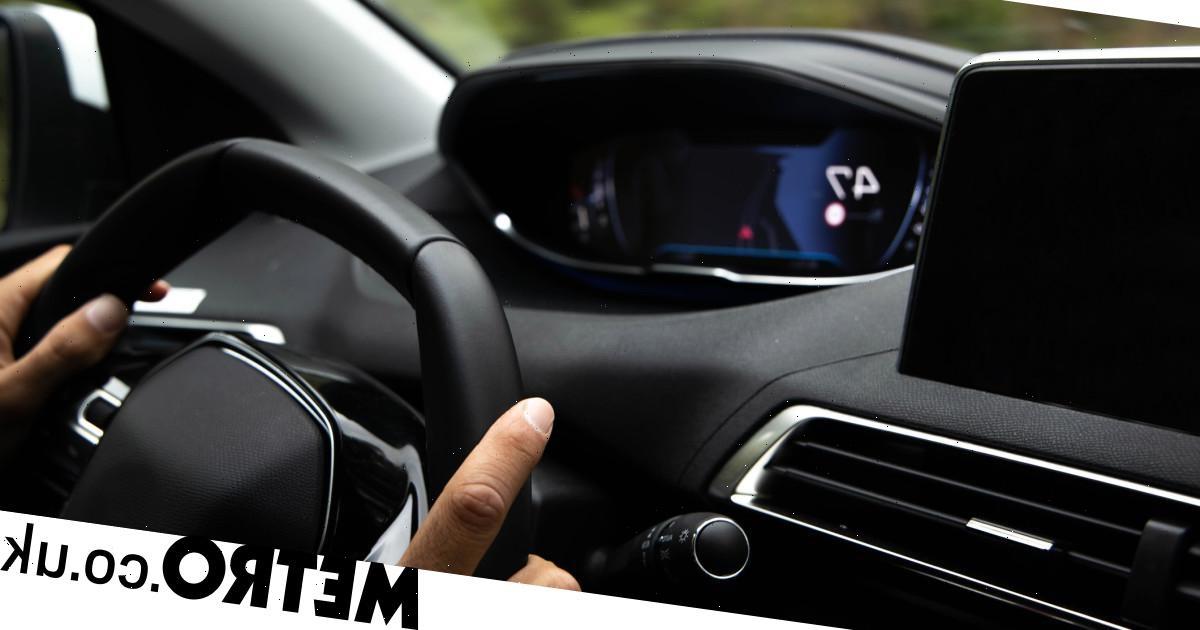Our cars will soon recognise and prevent motion sickness.
They’ll anticipate when you’re about to have a heart attack and pull safely to the side of the road, and they’ll even refuse to start if you’ve had one too many drinks at the pub.
This might sound like the stuff of science fiction but it’s the dawn of a health-conscious new motoring reality.
Most of us recognise the benefits of maintaining a healthy mind and body in the home.
But placing emphasis on wellness when we’re on the move is just as important.
Intrigued? There’s plenty of useful tech doughnuting round the sector…
No more road rage
Need to take a chill pill? Even entry-level motors feature stereo systems that relax us or live satellite navigation to reduce the stress of being caught in traffic.
At the premium end of the market, Mercedes has rolled out fragrance systems — with names like Freeside Mood (gently citrusy, ‘without any rough edges’) and Downtown Mood (‘transparent floweriness with a subtle metal effect’ that’s, um, ‘pleasantly sexy’) — that fill your car with scents to calm you down.
Find them in the C, E or S classes.
The car doctor will see you now
Ford has announced it is working on a car seat that’s fitted with sensors to monitor a driver’s heart rate through their clothing and can warn of impending health issues.
If the system detects a problem with the driver’s health, it can send a warning to pull over.
And that’s not all. Tech companies such as Harman are even mulling over plans for so-called teledoctor services, where sensors in the car or wearable gadgets like a smartwatch can detect an irregular heart rate or low blood sugar level.
It would then allow the vehicle to contact a doctor, who could advise the driver about their health while on the move.
Pay attention
Plenty of cars have systems that can recognise when we’ve been driving for too long and may need a break.
But there are more on the horizon. Harman is also experimenting with advanced driver monitoring systems that use cameras to capture the driver’s biometric features — gaze, head position and even pupil diameter — to calculate brain activity levels, including ‘high cognitive load’ to detect when you might be distracted.
Similar systems have already been rolled out.
Cadillac’s Super Cruise feature uses a driver-facing camera to check if you’re looking at your phone or have your eyes closed.
It then emits audible and visual warnings to tell you to pay attention and can even take control of the driving if necessary.
And if that’s not enough, the boffins at VW’s electronics development department are working on a system that can sense how much sleep you might have had the night before driving.
If it thinks you’re a bit knackered, it’ll offer to wake you up by activating the massaging seats and playing your favourite song, like having your best mate in the passenger seat. Hooray!
Car sickness and cramp
Can’t face another stomach-churning speed bump? Jaguar Land Rover has fitted its E-Pace SUV with a system that can help reduce car sickness.
It has multiple seat configurations that help passengers find a position that raises the infotainment screen to eye level and adjusts the suspension to tune out wafty motions that might cause sickness.
The enterprising lot at Jaguar are also working on a morphing seat that uses actuators to create constant micro-adjustments that simulate the rhythm of walking, which it thinks can mitigate against health risks of sitting too long on long journeys. It sounds bonkers but your muscles will thank you.
It’s the law! Black boxes and breathalysers
Many examples of car-based wellness tech may seem far-fetched but laws are already in place to help make us safer on the road.
From 2022, all new cars sold in the EU must be fitted with driver-controlled speed limiters, driver drowsiness and attention warning systems, emergency lane keeping, accurate tyre pressure monitoring and event data recorders — like black box data recorders in aircraft. It is expected the UK will follow the same legislation.
The same rules stipulate that new cars must have technology that allows a breathalyser to be fitted to the vehicle.
Ordinary motorists will not be required to use them but drivers who have been convicted of drink-driving may have to provide a negative alcohol sample in order to start the vehicle.
Ask the Car Doctor
HOW DO I IMPROVE MY MILES-PER-GALLON?
CAZOO automotive writer Graham King says: The easiest way to squeeze more miles out of a gallon is to inflate your tyres to the right pressure.
A tyre with low pressure spreads out to cover more of the road, creating more friction. That means the engine has to work harder and burn extra fuel. Turn off any electrical equipment you don’t need, like the air con. It’s all powered by the engine and can sap a surprising amount of fuel.
Have your car serviced regularly — if it’s fit and healthy, an engine will go farther on a gallon. Changing the way you drive can improve MPG, too.
Don’t rev the engine too hard, and brake as gently as you can. If you have a manual gearbox, shift up as early as possible.
How to get your Metro newspaper fix
Metro newspaper is still available for you to pick up every weekday morning or you can download our app for all your favourite news, features, puzzles… and the exclusive evening edition!
Download the Metro newspaper app for free on App Store and Google Play
Source: Read Full Article


